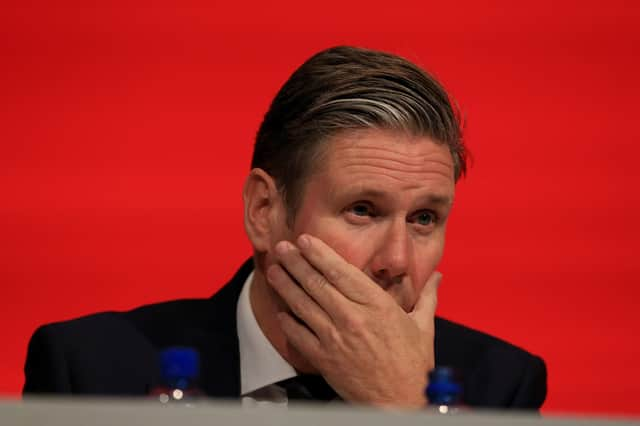News really does matter to our lives


In honesty, they were probably happier to see my repurposed ice cream tub filled with home treats than they were to see me. In any case, it’s nice to be back to routine.
On Monday morning we were discussing The Pandora Papers - a leak of 11.9 million files obtained by the International Consortium of Investigative Journalists. An investigation of the documents revealed how world leaders use legal loopholes and schemes to hide their wealth. But, as a journalist who is captivated by even the most trivial news stories, this one scored low on my excitement index. Why? Because it didn’t feel shocking that rich people do whatever they can to maintain their wealth, and that one of the most recognisable faces on the front pages of the papers was - shock - Vladimir Putin and that this is the umpteenth time we’ve seen a data leak like this and - shock - nothing has changed. It’s a story that is as old as time itself - inequality. But, on top of that, is the feeling that we are powerless to actually do anything about it.
Advertisement
Hide AdAdvertisement
Hide AdLast week, the nation was horrified at the emergence of details of the kidnap, rape and murder of Sarah Everard. As a former police officer was sentenced to life in prison, focus turned to the Metropolitan Police force and its handling of one of its own. Dame Cressida Dick, the boss of the force, is, unfathomably, still in her job. She says she wants the force to regain the public’s trust and announced a review of “standards and culture”. Her Deputy, lest we forget, is Sir Stephen House. Sir Stephen House was the chief constable of Police Scotland in 2015 when Lamara Bell died on the M9 due to police failings. He took early retirement shortly after but was hired by Dame Cressida in 2018. He now earns more than £200,000 a year as her Deputy. Dame Cressida and Sir Stephen are presiding over failure, and they’re not being held accountable.
This is the sort of news story that reverberates like a clanging cymbal throughout the country. This is a real life news event that we can all connect to through our own experiences and the experiences of our loved ones and, more than that, we feel we have the power to change. We feel the overwhelming injustice of what happened to Sarah Everard, and we want to act to hold those responsible, accountable, and to work hard to stop it from ever happening again.
This week, our radio coverage is dominated by political party conferences. Often dull to the outsider, and a thrill-filled, karaoke fuelled bubble to the insider, party conferences are a strange season. They generate important discussions and political intrigue, and can often signal policy intentions and the “direction of travel” of the government and the opposition. But how much do we care? Not very, according to YouGov. Their 2021 survey asked how much attention we pay to conference season. 3% said “a lot”. 35% said no attention at all. 40% said not much attention. 75% in the least caring categories is the damning summary.
This is a difficult road to navigate when providing news coverage. Decisions on what stories and issues are covered are not an X-Factor style, democratised public vote - it should never be a popularity contest. I think when journalism becomes primarily about attention seeking, you’ve gone drastically wrong. However, party conferences are important. They are where leaders of our country gather to address supporters and detractors and it is up to us all to pay attention, to question and interrogate, and to analyse what they’re saying. Why is it, then, that the lasting legacy of Keir Starmer’s speech to the Labour party last week, is that he was heckled? (My personal favourite: “Where is Peter Mandelson?” which I now occasionally bellow out my flat window at the builders to see if they’ve found an answer. They have not.)
Advertisement
Hide AdAdvertisement
Hide AdThe leader of the opposition primarily used his speech to separate himself from his predecessor - Jeremy Corbyn - and try to set Labour on course for election victory. Did he do enough? I was covering the conference, and the most memorable moment was a heckle. Why do we not care more? Because it feels like these politicians are aloof and distant, that they live in their own political bubble and have no sense of what we are living through in the real world. That’s not always true, as Sir Keir’s anecdotes about his own family tried to demonstrate.
There are different kinds of news stories we work on and they have various levels of impact on us. The Pandora Papers revelations leave us feeling bereft of any ability to do anything about those who seem not to care about the moral code by which most of us live; the tragic death of Sarah Everard motivates us to work hard for much needed change; political party conferences can pass us by despite their importance for us when it comes to judging those in charge and deciding who should hold that privilege.
As I think about the huge variety of news stories we cover on air, it is impact and significance that I consider most. We should not let news stories pass us by. They are all significant, even if their impact is not always obvious. The stories that impact us most, should inspire us most to make change. News matters, even when it might not feel like it.